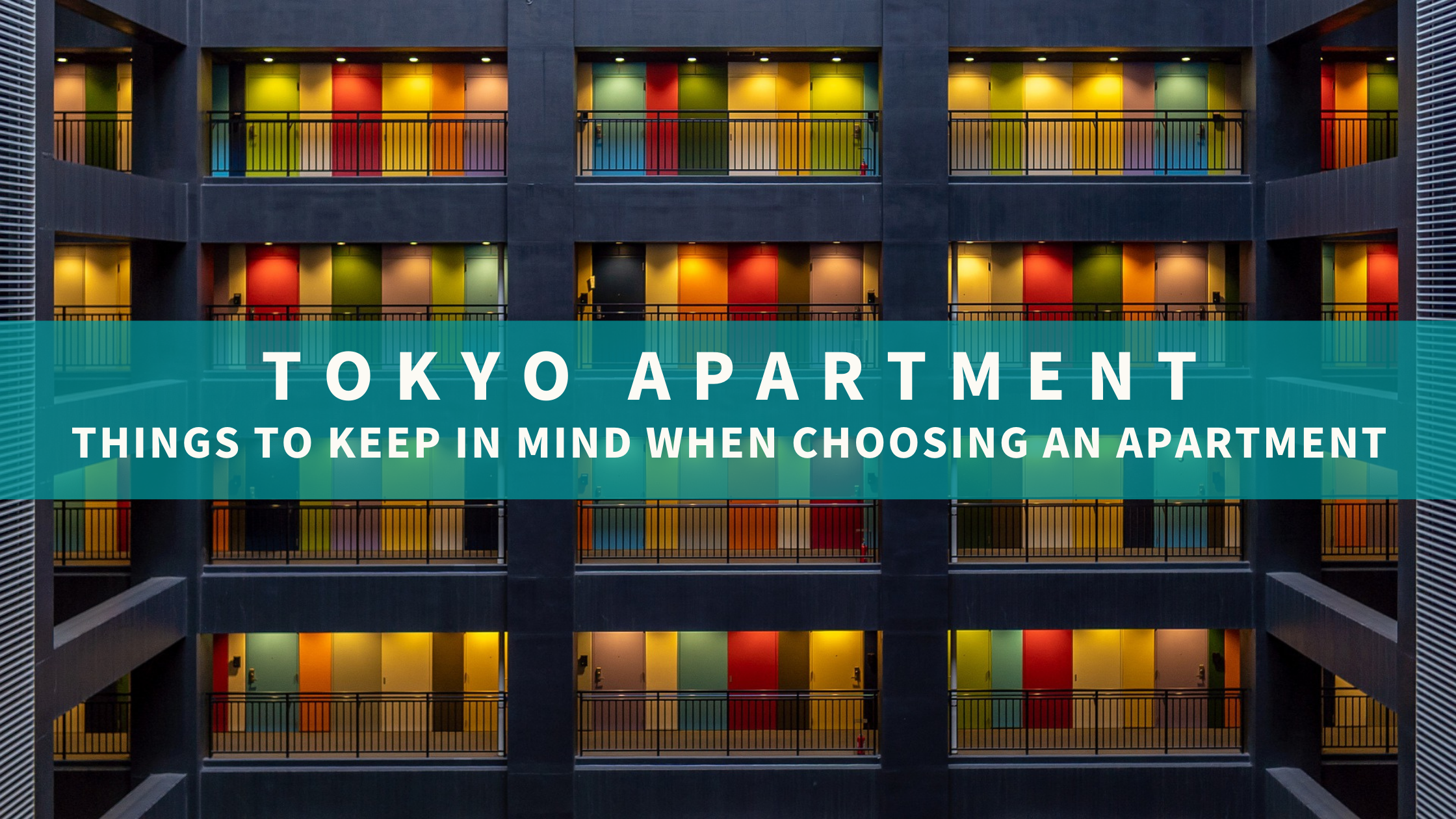
Tokyo is an incredible place to live and work, so coming here to teach English can be an immensely rewarding experience. And to get the most out of your life in this city, you’ll need a good base of operations to live out of! But where to begin, what’s important in a place to live in Tokyo? Here are some things to consider:
Going the Distance
For the majority of you coming to Tokyo to teach English, driving yourself to work daily is pretty much not an option. This is for a variety of reasons, but at the very least driving and parking within the metropolitan area is not a very pleasant nor affordable experience. Instead, you’ll be taking the train (or subway) daily. The proximity to the stations you’ll need at home, work, and shopping is often the #1 foremost consideration – and this will be reflected in the rent cost!
For many people living inside Tokyo, access to the station in under 10 minutes (be it on foot or by bicycle) is a target to aim for. Keep in mind that this walk should be calculated with the time on the train and the time from the station to your school to get an idea of what your actual commute and wake-up time will look like.
Some Trains are Better than Others
Definitely do your research on whichever train line you’re considering living on – because conditions on them can cause headaches you never imagined. On the most heavily used commuter train lines you may be riding in cars stuffed like sardine cans with no hope of ever sitting down. Some trains are also, sadly enough, preferred by jishin-jiko suicides which can set your commute back an hour or more several times a week. For women, there are also trains more notorious in rush hour for groper and other deviants so beware. For many people, a slightly longer train ride home on a reasonable train is far preferable to a short ride in a hellish cattle car.
Sorry, no “gaijin”…
Many places just won’t rent to a “foreigner”, especially not a fresh-off-the-boat one totally unestablished in Japan. I know, it’s a real pain, but it’s not so difficult to get around: there are real estate agents who specialize in placing non-Japanese and will help you narrow down to a shortlist of apartments you can be sure will take your application. It’s easy enough to find these agents online and they can be invaluble especially if you don’t speak or read Japaness
How Old is the Building?
The idea of an “old Japanese building” brings to mind images of beautiful tiled roofs and sliding shoji reminiscent of a Ghibli film. Such places do exist… outside of Tokyo! In the metropolis, in the reality of living in apartments here, older is pretty much always a bad thing. Here’s a few reasons why:
Thin Walls: In Japan, it’s long been the norm that walls are both thin and barely insulated – an interesting architectural habit but not in a good way. This means you’ll both hear your neighbor snoring, and be running your heater constantly in the winter. Newer buildings are gradually getting better, but if your apartment is old be sure to give the walls a few knocks on your walkthrough to see what you’re dealing with.
MOLD!: This country is humid, nearly tropically so. It’s a fact of life that in older buildings, homeowners and tenants alike have to do battle with mold all through the year. Even if the walls and bathroom are clean, the air vents, window frames, and even inside the walls can be lousy with it. Old concrete apartment blocks are especially suspect here, so check carefully!
Upkeep: It’s outside the scope of this article to go into how crazy and upside-down the real estate situation is in Japan, but what’s important is this: pretty much without exception, the older a building gets the less incentive a landlord has to repair and improve it. You’ll see plenty of hideous, rusted and dilapidated apartment blocks inexplicably in some of the most astronomically expensive areas of Tokyo! Make sure where you’re living is reasonably maintained before you sign that contract.
Sharehouses
One option that’s particularly good for younger people or those who are expecting only a relatively short time in Japan is a sharehouse. A sharehouse is a kind of boarding room with common areas shared with other residents – like a communal living rooms or kitchen. If you’re on a budget, these are an affordable way to get a foot on the ground in the city. They also provide an environment where they can easily meet and connect with other people living alongside them, which is an awesome shortcut for people new to Tokyo.
I hope these tips help you get a handle on picking where to live – or even considering it in the future. Happy apartment hunting!


